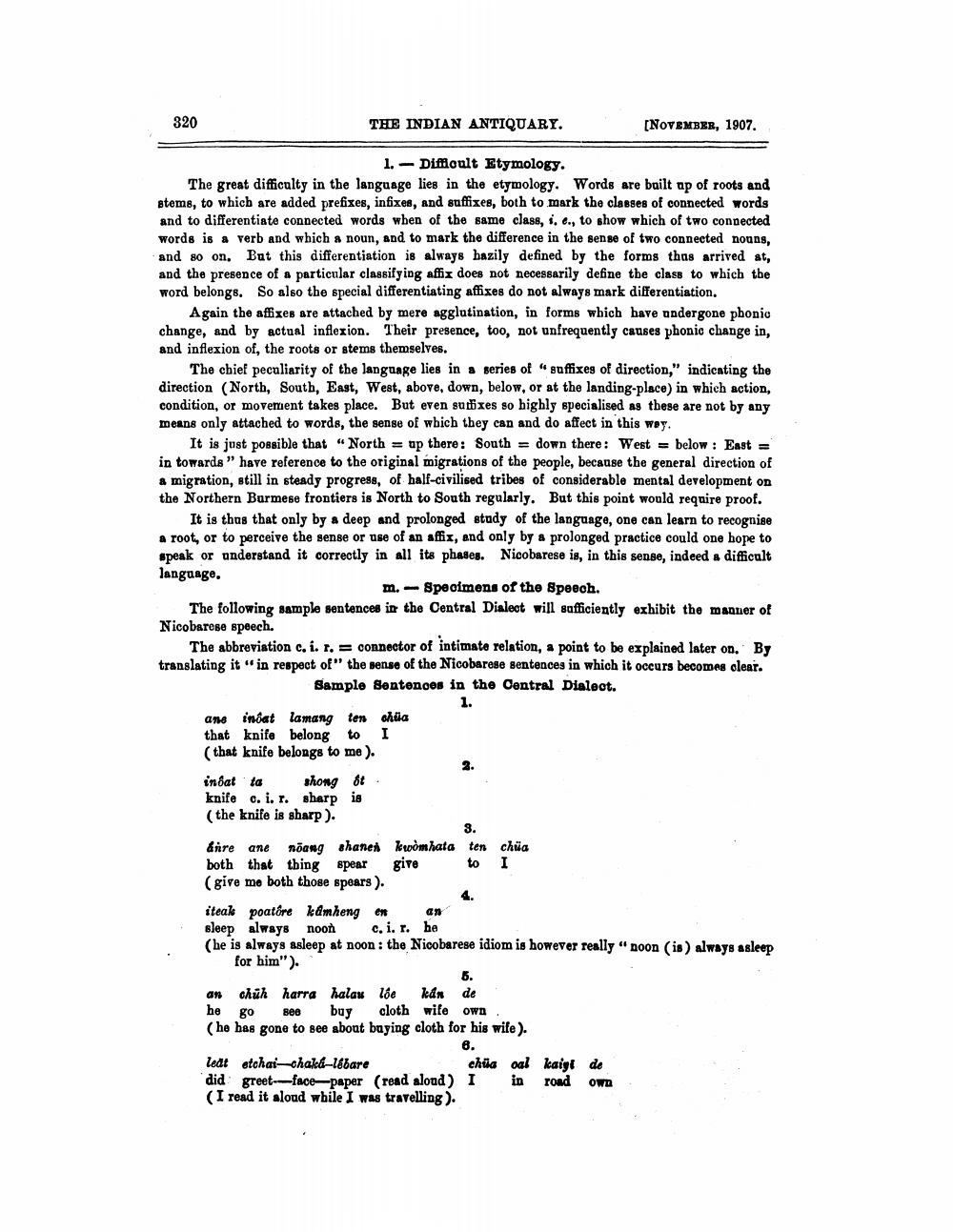________________
320
THE INDIAN ANTIQUARY.
[NOVEMBER, 1907.
1.- Difficult Etymology. The great difficulty in the language lies in the etymology. Words are built up of roots and stems, to which are added prefixes, infixes, and suffixes, both to mark the classes of connected words and to differentiate connected words when of the same class, i, e., to show which of two connected words is a verb and which a noun, and to mark the difference in the sense of two connected nouns, and so on. But this differentiation is always bazily defined by the forms thus arrived at, and the presence of a particular classifying affix does not necessarily define the class to which the word belongs. So also the special differentiating affixes do not always mark differentiation.
Again the affixes are attached by mere agglutination, in forms which have undergone phonic change, and by actual inflexion. Their presence, too, not unfrequently causes phonic change in, and inflexion of the roots or stems themselves.
The chief peculiarity of the language lies in a series of "suffixes of direction," indicating the direction (North, South, East, West, above, down, below, or at the landing-place) in which action, condition, or movement takes place. But even suffixes so highly specialised as these are not by any means only attached to words, the sense of wbich they can and do affect in this way.
It is just possible that "North = up there: South = down there : West = below : East = in towards” have reference to the original migrations of the people, because the general direction of a migration, still in steady progress, of half-civilised tribes of considerable mental development on the Northern Burmese frontiers is North to South regularly. But this point would require proof.
It is thus that only by a deep and prolonged study of the language, one can learn to recognise a root, or to perceive the sense or use of an affix, and only by a prolonged practice could one hope to speak or understand it correctly in all its phases. Nicobarese is, in this sense, indeed a difficult language.
m. - Specimens of the Speech. The following sample sentences in the Central Dialect will sufficiently exhibit the manner of Nicobarese speech.
The abbreviation c. i. 1. = connector of intimate relation, a point to be explained later on. By translating it in respect of the sense of the Nicobarese sentences in which it occurs becomes clear.
Sample sentences in the Central Dialeot.
ane ingat lamang ten shua that knife belong to I (that knife belongs to me). inoat ta shong 8t knife c. i. 1. sharp is (the knife is sharp).
dire ane nõang shanes kwòmhata ten chua both that thing speargive to I (give me both those spears ). iteak poatôre kamhengen an sleep always noon c. i. 1. he (he is always asleep at noon: the Nicobarese idiom is however really "noon (is) always asleep for him").
6. an chuh harra halau de kan de he go see buy cloth wife own (he has gone to see about baying cloth for his wife).
8. ledt etchai-chaka-lebare
chia oal kait de did greet--face-paper (read aloud) I in road own (I read it aloud while I was travelling).




